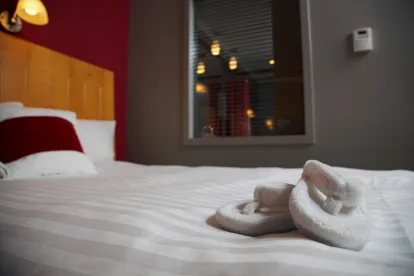Michael Vecchio, a 29 year-old patient at Greystone Park Psychiatric Hospital in Parsippany, died after 3 months of hospitalization. The patient did not have a terminal illness or life-threatening condition–he was admitted because he suffered from schizophrenia. After weeks of not eating, he passed away.
The facility pointed to privacy laws when preventing Michael’s family from knowing he stopped eating until he was rushed in an ambulance to Morristown Medical Center on Jan. 24, 2017. His mother, Beth Vecchio, said a nurse told her that Michael suffered severe stomach pain “for a few days” before Greystone finally called the ambulance. Michael died twenty hours later.
The same day, Michael’s sister went to pick up his belongings at Greystone, where a staff member told her, “I’m sorry to hear of his passing. I thought he was going to start to eat. What a shame.” When the sister asked how long did he not eat for, the employee replied “about 30 days,” according to Beth.
“They let him starve for at least 30 days,” Beth Vecchio told NJ.com.
Beth Vecchio is suing the state of New Jersey and Morristown Medical Center for wrongful death and negligence.
Beth knew almost nothing about her son’s treatment until his death, when she was able to read his medical records. Beth said, “[Michael] would not see me. He was actively psychotic. They told me they would try to get him to sign the HIPPA form,” which would allow the facility to disclose his medical records to family members.
According to his medical records, Michael told the Greystone staff that he was a “Zen master,” and like Gandhi, would not eat. His records stated that the staff “encouraged” him to eat and that he occasionally broke his fast with soy milk, fruit and candy.
“Hospital is a word for a place that takes care of people. If I were the one giving him care, he would have eaten. If he refused to eat because he was psychotic, I would have taken him to the hospital where they would have nourished him,” Michael’s mother said.
Patients with mental issues deserve adequate nursing care like everyone else and health care facilities should not be permitted to use patients’ uniformed or irrational decisions to justify lack of care. However, this is what unfortunately happens in many cases involving neglectful nursing care.
Nursing homes often have memory units which house dementia residents. We often see facilities permitting nurses to simply write down that the patient “refused” care, treatment and nutrition or that the staff “encouraged” the patient to do something the facility is required to do. It’s appalling how a facility can obey a patient or resident’s desire to turn down care knowing that the person has no medical knowledge or even at times where the resident is diagnosed with cognitive impairments like dementia.
Michael Vecchio is not the exception. The culture in poorly-run facilities is to use the patient’s refusal as an excuse to do as little as possible.
When your loved one is in a state of mental impairment, you can feel helpless. In Beth Vecchio’s situation, her schizophrenic son’s desire not to release information to her was obeyed and the most she could do was to trust that he was safe and cared for in the facility. This is not the common situation. In most cases family and friends are permitted to visit and receive information about admitted loved-ones. When visiting someone who is admitted, one should be observant for signs of neglect and abuse and take appropriate steps to correct any issues.
For more about Michael Vecchio’s story, you can watch this video from NJ.com:


 />i
/>i

